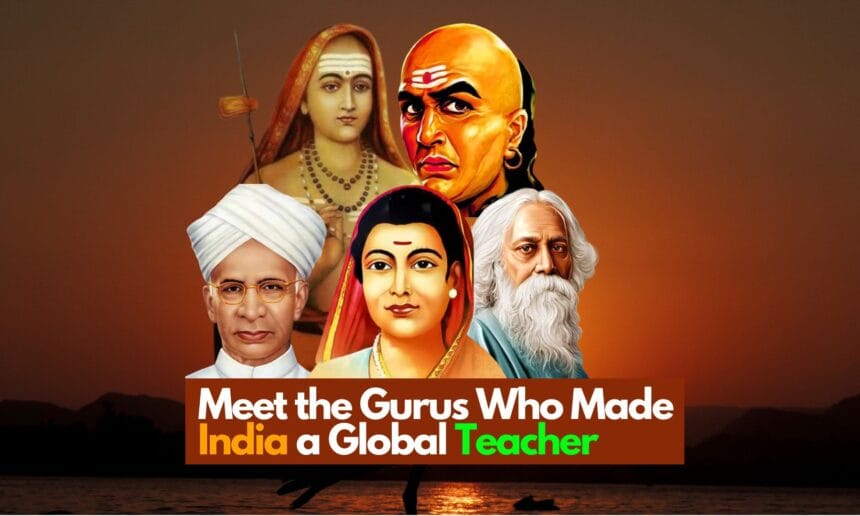India’s rich educational heritage is shaped by some truly exceptional teachers. Each of these figures not only excelled in their fields but also left a lasting impact on education in India. Let’s explore some of the greatest Teachers of India and their lasting influence.
1. Dr. Sarvepalli Radhakrishnan
Dr. Sarvepalli Radhakrishnan was born on September 5, 1888, in a small village in Tamil Nadu and was one of the greatest teachers of India. He came from a modest Brahmin family and showed an early interest in philosophy. He pursued his education at Madras Christian College, where he earned a master’s degree in philosophy.
He received several prestigious awards, including the Bharat Ratna in 1954, India’s highest civilian honor. He was also nominated for the Nobel Prize in Literature multiple times. His birthday, September 5, is celebrated as Teacher’s Day in India to honor his contributions to education.
2. Chanakya
Chanakya, also known as Kautilya or Vishnugupta, was born around 375 BCE in a Brahmin family in ancient India and was one of the greatest teachers of India. He studied at the Takshila University, where he later became a renowned teacher. His strategic thinking and political acumen played a significant role in the establishment of the Maurya Empire.
Chanakya’s work, particularly the Arthashastra, has been recognized as one of the earliest and most influential texts on statecraft and economic policy, making him a legendary figure in Indian history.
3. Adi Shankaracharya
As a teacher, Adi Shankaracharya was truly remarkable. He didn’t just teach facts; he inspired a new way of living. His method was all about bringing together different Hindu beliefs and practices. He introduced the Panchayatana worship, where people honor five different deities as forms of the one Brahman, which helped unite various traditions.
Shankaracharya’s impact as a teacher is huge and lasting. The title ‘Shankaracharya’ now represents respected leaders of monastic groups in the Advaita Vedanta tradition. The monasteries he set up in places like Sringeri, Dwarka, Puri, and Jyotirmath continue to be important centers for learning and spirituality.
4. Savitribai Phule
Savitribai Phule was born on January 3, 1831, in a small village in Maharashtra and was one of the greatest teachers of India. Despite being born into a lower-caste family, she was one of the first women in India to receive formal education, thanks to her husband Jyotirao Phule’s support. Together, they championed the cause of women’s education and rights.
Savitribai is posthumously honored as a pioneer of women’s education in India. Numerous schools, colleges, and awards have been named after her to recognize her immense contributions.
5. Rabindranath Tagore
Rabindranath Tagore was born on May 7, 1861, in an affluent Bengali family in Calcutta. He was homeschooled and had a keen interest in literature and the arts from a young age. Tagore later traveled to England to study law but returned to India to focus on writing and education. He founded Santiniketan and Visva-Bharati University. Tagore believed that education should not be a burden, but a liberating experience that nurtures the innate curiosity and creativity of a child. He envisioned a holistic education deeply rooted in one’s culture and surroundings but also connected to the wider world.
Tagore was the first non-European to win the Nobel Prize in Literature in 1913 for his collection of poems, Gitanjali.
These educators not only excelled in their respective fields but also received numerous accolades for their groundbreaking work. Their early lives are a testament to their determination and passion for learning, which they passed on to countless others. Their legacies continue to inspire and shape the future of education in India, making their place permanent among the greatest Teachers of India.










